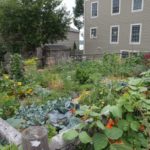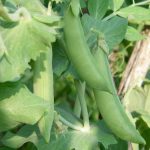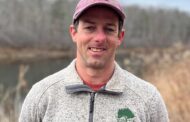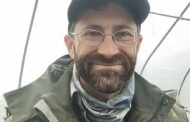Why care about genetic diversity of Plants?
PelotonPosts is a monthly interview with a member of PelotonLabs, a co-working community in Portland’s West End. This month, Peloton’s founder Liz Trice caught up with Kelly Corbin from Wild Seed Project, which works to increase the use of native plants to conserve biodiversity, encourage plant adaption in the face of climate change, safeguard wildlife habitat, and create pollination and migration corridors for insects, birds, and other wildlife.
Liz: Why are wild seeds important?
Kelly: When you go to the nursery, those plants are grown clonally and are genetically identical to every other plant of the same species there. They are cultivated for characteristics like a certain flower color or more petals.
Plants grown from seed are better for the insects and pollinators they have coevolved with for thousands of years. They provide exactly what those organisms need. Cultivars, even of native plants, are not as useful to native pollinators.
Genetic diversity is also key. That’s how resilience develops. When each plant is a little genetically different from others of the same species, one may be more adapted to warmer temperatures, another to extended drought, another to disease. By having diversity, more plants are likely to survive climate changes.
Liz: Your magazine “Wild Seed”, is coming out soon.
Kelly: Volume three is coming out at the end of May! This issue has three sections: reimagining landscape design, natural history and biodiversity, and growing native plants at home.
I’m excited to see the magazine published as a complete whole, and see how people react to it. There is something for everyone, no matter where you live. There are articles about farmers adding pollinator corridors, planting native plants in urban environments, and how native plant communities are changing in large scale landscapes like Acadia National Park.
We publish 1,800 copies. All of our members get one. We also sell them locally at the Portland Food Co-op, Longfellow Books, Shermans, local garden stores, and at events. We also sell them in stores further north and along the coast.
Liz: Besides the magazine, what does Wild Seed Project do?
Kelly: We host workshops, walks and talks to train people in how to identify native plants, and propagate them. We also collect seeds, clean and package them, then sell them on our website. We have over sixty species of flowers, shrubs, trees, vines and ferns for sale.
The organization has a lot of opportunities to volunteer in late summer into the fall. You can learn more and sign up for workshops or our mailing list at Wildseedproject.net, and on Facebook. An annual membership starts at $40, you get a copy of the magazine and 20% off our seeds.
We’ll be the featured non-profit for GreenDrinks the evening of July 11th at Maine Audubon in Falmouth, and will table at the Common Ground Fair in September. We have some local walks coming up in Cape Elizabeth and Falmouth as well.
Liz: How did you get into this?
Kelly: My background is science, ecology and education, and I wanted focus more on landscape design and natural history. I met the executive director, Heather McCargo, when I was attending the Conway School of Landscape Design – she’s also an alum. When I was graduating last year, she was in the process of moving the nonprofit down to Portland from Blue Hill, and she hired me.
Liz: What do you like about Peloton?
Kelly: Peloton is a great place to focus. My job involves a lot of different pieces, and being at Peloton allows me to work on one task at a time. It’s also nice to have the network. Our organization is still so small, and there are so many great organizations in Portland, so the more visible you are, the better.
PelotonLabs
PelotonLabs is open to new members and has an open house every Tuesday from 9 a.m. to noon. Contact at info@pelotonlabsportland.com or visit our website http://pelotonlabsportland.com.







